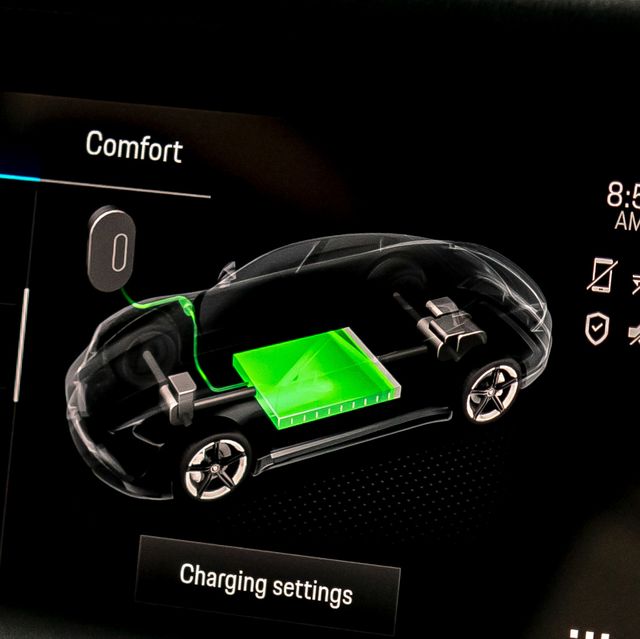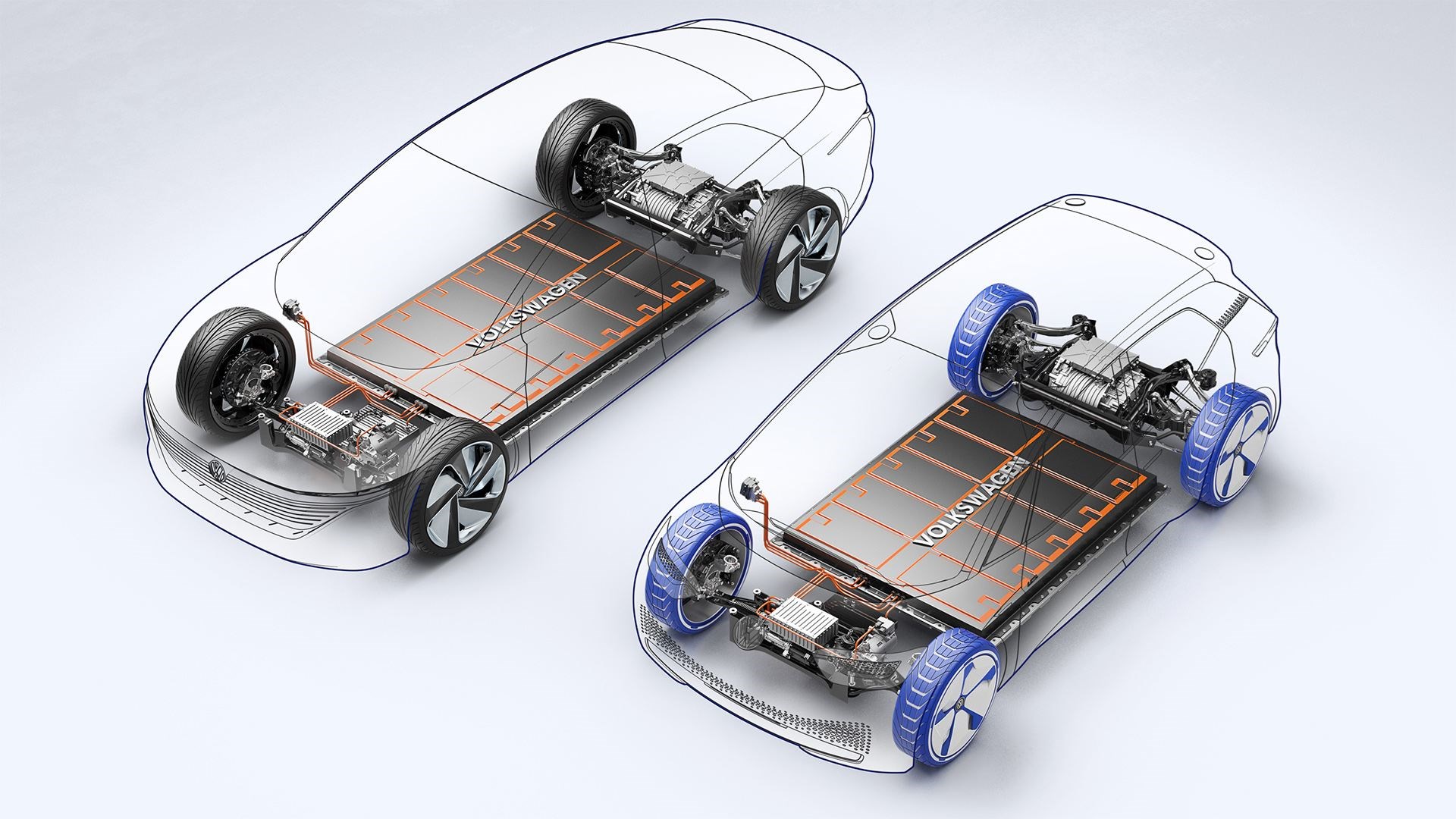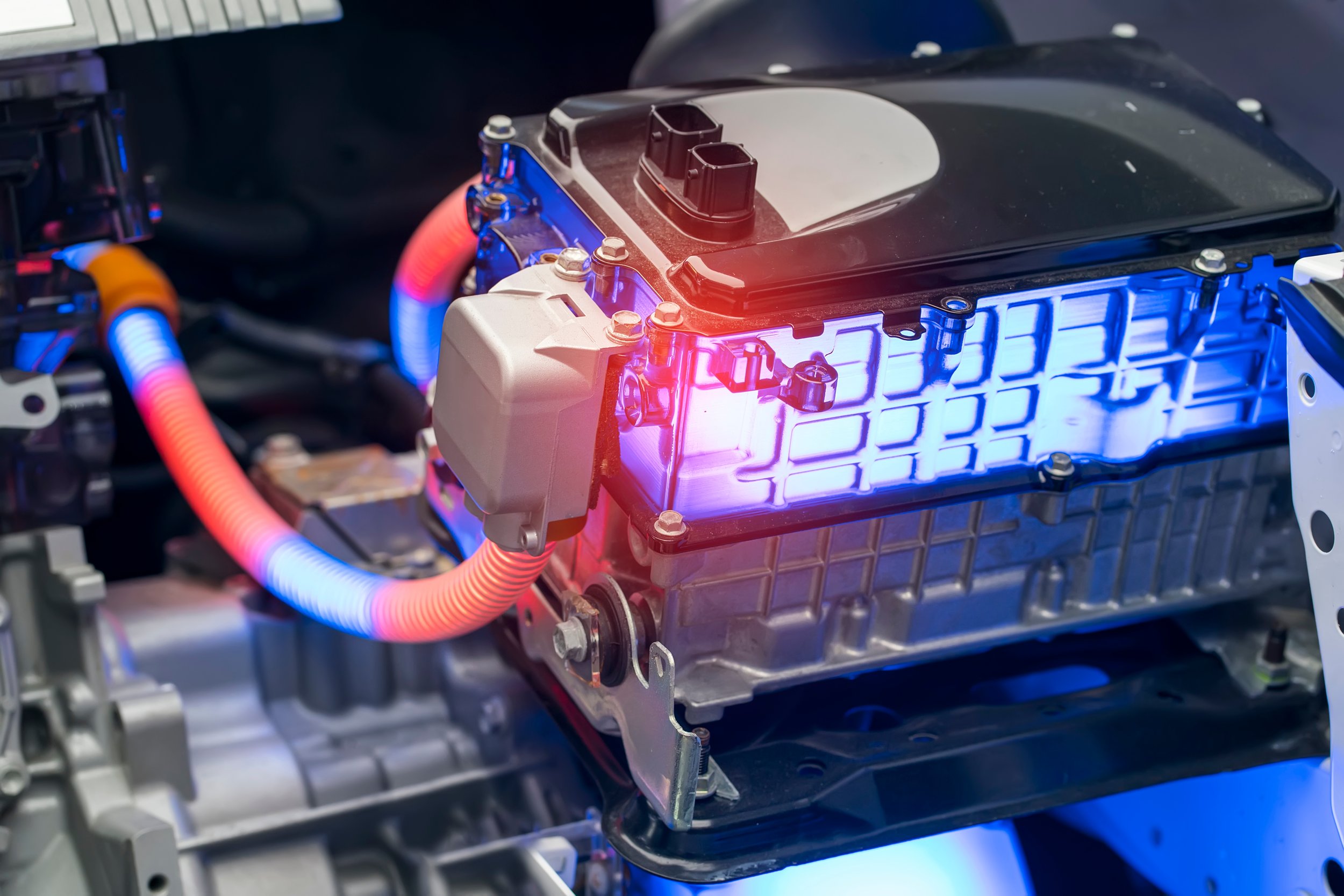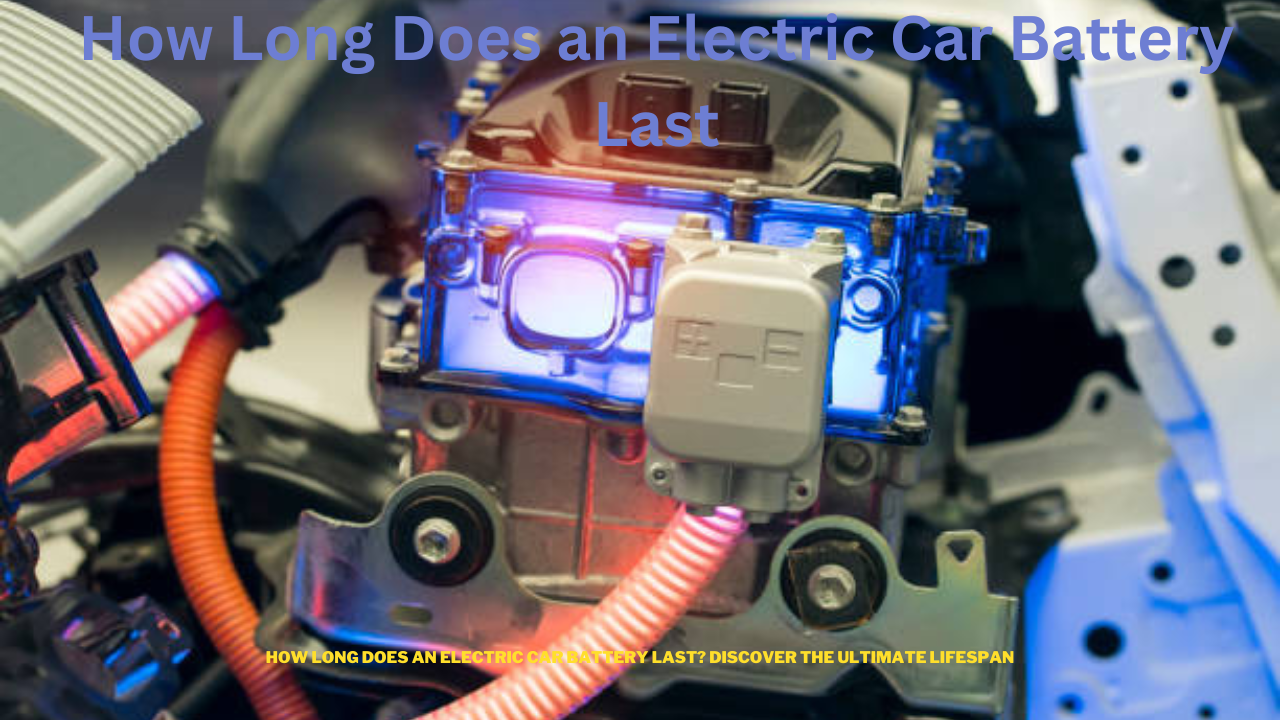How Long Does an Electric Car Battery Last? It typically lasts between 8 to 15 years before replacement is needed. Now, let’s explore the factors that affect the lifespan of an electric car battery and what you can do to maximize its longevity.
Electric cars have gained popularity in recent years due to their eco-friendly nature and cost-effective operation. However, questions about the longevity of electric car batteries often arise. Many factors come into play when determining how long an electric car battery will last.
We will discuss the average lifespan of electric car batteries, what affects their longevity, and some tips to extend their lifespan. Making an informed choice will be made easier if you are aware of these things when considering an electric car purchase.
Factors Affecting Electric Car Battery Lifespan
When it comes to electric vehicles, one of the common concerns among potential buyers is how long the battery life of an electric car. The battery life of an electric vehicle is influenced by several factors that owners should be aware of.
Understanding these factors can help car owners take appropriate measures to extend the battery’s life and maximize the performance of their electric car. Here are three key factors that affect electric car battery lifespan:
Battery Chemistry
The chemistry of the battery used in an electric car plays a significant role in determining its overall lifespan. Currently, the most common battery chemistry used in electric vehicles is Lithium-ion (Li-ion) batteries. Li-ion batteries are well-known for their high energy density, long life cycle, and quick charging capabilities.
These batteries can last for several years if treated and maintained correctly. However, it’s important to note that not all Li-ion batteries are created equal. Different manufacturers and models might use varying battery chemistries, which can affect the overall lifespan and performance of the battery.
Driving Habits
Another crucial factor that impacts the battery life of an electric vehicle is the driver’s habits and behaviour. Aggressive driving styles such as rapid acceleration, high speeds, and frequent hard braking can put additional strain on the battery, causing it to degrade faster.
On the other hand, adopting a smoother and more efficient driving style, like gradual acceleration and controlled braking, can help prolong the battery’s life. Additionally, excessive use of power-consuming features such as air conditioning, heating, and high-power stereo systems can also drain the battery more quickly.
Environmental Conditions
Environmental conditions, including temperature and climate, have a significant impact on the longevity of an electric car battery. High temperatures can accelerate the degradation of the battery, leading to a shorter lifespan. On the contrary, extremely Low temperatures can cause a battery’s efficiency to drop, which will lower its performance and range.
Storing an electric vehicle in extreme temperatures for an extended period can also negatively affect the battery’s health. Therefore, it is essential to park and charge the car in a moderate temperature range whenever possible to optimize the battery lifespan.
By considering the battery chemistry, adopting efficient driving habits, and being mindful of environmental conditions, electric vehicle owners can enhance the lifespan of their car’s battery.
With proper care and maintenance, an electric car battery can last for several years, providing a reliable and eco-friendly transportation solution for the long haul.

Credit: www.caranddriver.com
Average Lifespan Of Electric Car Batteries
Batteries for electric cars are an essential factor in determining the overall lifetime and performance of an electric car. When making an electric vehicle purchase car, understanding the average lifespan of the battery is essential for making an informed decision.
This article will examine the typical life of batteries used in electric vehicles, the different battery types available, the manufacturer’s warranty, and the impact of real-world usage on battery life.
Different Battery Types
Various types of batteries power electric cars, the most common being lithium-ion batteries. The extended cycle life and high energy density of these batteries are well-known, and they have good performance in a wide range of temperatures.
However, within the category of lithium-ion batteries, there are different chemistries such as lithium iron phosphate (LiFePO4), lithium-nickel-manganese-cobalt oxide (NMC), and lithium-titanate oxide (LTO), each with its advantages and disadvantages.
Another nickel-metal hydride (NiMH) battery is the type of battery utilized in electric vehicles. NiMH batteries last longer than lithium-ion batteries, even though they are less popular and are more cost-effective for some manufacturers.
However, NiMH batteries are less densely packed with energy and are heavier compared to lithium-ion batteries, resulting in reduced range and performance.
Manufacturer Warranty
The typical battery life of an electric vehicle is an important consideration for potential owners. Manufacturers typically provide a warranty for the battery that covers a specific duration or a predetermined number of miles, whichever occurs initially.
The guarantee period varies between manufacturers and models, but it is common to see warranties ranging from 8 to 10 years or around 100,000 to 150,000 miles. However, it’s worth noting that the warranty may not cover all types of battery degradation.
Real-world Usage
The actual lifespan of Electric car batteries can differ based on various factors, including usage patterns, charging habits, and environmental conditions. Real-world usage can affect the battery’s capacity and overall performance over time.
High temperatures, heavy acceleration, and frequent deep discharges can accelerate battery degradation, leading to a shorter battery lifespan. On the other hand, gentle driving, avoiding extreme temperature conditions, and regular maintenance can help extend the battery’s life.
When it comes to batteries for electric cars, it’s crucial to consider the average lifespan, different battery types, manufacturer warranty, and real-world usage. Understanding these factors can help potential electric car owners make knowledgeable choices and guarantee they maximize their investments.
Extending The Lifespan Of Electric Car Batteries
Electric cars have revolutionized the automotive industry with their eco-friendly nature and efficient performance. As electric vehicles become more popular, it’s essential to understand how to extend the lifespan of electric car batteries, which are the heart of these vehicles.
By implementing proper charging practices, regular maintenance, and utilizing battery cooling systems, you can maximize the longevity of your electric car battery.
Proper Charging Practices
Charging your electric car battery correctly is crucial in ensuring its long-term durability. Here are some best practices to adhere to:
- Use the manufacturer-recommended charging equipment and follow the provided instructions.
- Avoid using fast chargers excessively, as they can generate additional heat and put strain on the battery.
- Charge your battery in moderate temperature conditions, as extreme temperatures can negatively affect its performance.
- Try to maintain a battery charge level between 20% and 80% to prevent battery degradation. It is advisable not to Allow the battery to drain to less than 20% or exceed 80% frequently.
- Consider using a timer to control and optimize your charging process, especially if you have a time-of-use electricity rate.
Regular Maintenance
Regular maintenance plays a significant role in preserving the lifespan of your electric car battery. Here are some maintenance tips to keep in mind:
- Schedule regular check-ups with a certified technician who specializes in electric vehicles. They can assess the battery’s health and diagnose any potential issues.
- Keep the battery and its surrounding components clean and free from dirt and corrosion. Regularly inspect and clean the battery terminals to ensure proper electrical connections.
- Monitor your battery’s state-of-charge (SOC) regularly using the vehicle’s onboard systems or a compatible smartphone app. This allows you to stay informed about your battery’s performance and take appropriate measures when necessary.
- If your electric car is not going to be used for an extended period, such as during vacations, ensure the battery is stored with a charge level between 40% and 60%.
Battery Cooling Systems
Electric car batteries are sensitive to high temperatures, which can accelerate their degradation. Installing a temperature regulation of the battery can be aided by a battery cooling device, thereby extending its lifespan.
These systems use cooling fluids or fans to dissipate heat generated during charging or driving. Battery cooling systems are particularly beneficial in hot climates or when the vehicle frequently undergoes fast charging.
By implementing proper charging practices, regular maintenance, and utilizing battery cooling systems, you can significantly extend the battery life of your electric vehicle.
These procedures extend the battery’s lifespan while also ensuring optimal performance, allowing you to enjoy your electric vehicle for years to come.
Replacing Electric Car Batteries
Changing the batteries in an electric automobile is an important consideration for electric vehicle (EV) owners. Eventually, the battery in an EV will need to be replaced due to normal wear and tear.
In this section, we will discuss various aspects related to battery replacement, such as the price of replacing a battery, recycling and disposal of old batteries, and the option of upgrading to newer technologies.
Cost Of Battery Replacement
The cost to replace the battery in an electric car varies based on the vehicle’s make and type. On average, new The cost of an electric vehicle battery pack can range from $5,000 to $15,000.
However, with advancements in battery technology and increased demand for electric vehicles, we can expect these costs to decrease over time.
In addition to the price of the battery pack itself, it’s important to consider any additional expenses, such as labour costs for installation and potential software updates that may be required.
It’s recommended to consult with a certified technician or the EV manufacturer to get an accurate estimate of the total cost of battery replacement for your specific electric vehicle.
Recycling And Disposal
Proper disposal of old batteries for electric cars is crucial to prevent environmental harm. Electric vehicle batteries contain valuable materials that can be recycled and reused. Recycling not only reduces the environmental impact but also advances the circular economy by recovering valuable resources.
Most electric vehicle manufacturers have programs in place for the recycling of old batteries. They typically work with accredited recycling facilities to guarantee the responsible and safe disposal of the batteries.
EV owners need to follow the manufacturer’s recommendations and guidelines for recycling and disposal of old batteries. This guarantees the battery’s recycling through the appropriate channels and minimizes any potential risks associated with improper disposal.
Upgrading To Newer Technologies
As technology continues to advance, newer and more efficient batteries are being developed for electric vehicles. Upgrading to these newer technologies can offer improved range, faster charging times, and overall better performance. But it’s crucial to take into account the cost-benefit analysis of upgrading.
Upgrading to a newer battery technology may require additional expenses, such as installation costs and potential modifications to the vehicle. It’s recommended to research and compare the benefits and costs of upgrading before making a decision.
Consulting with a certified technician or the EV manufacturer can provide valuable insights into the feasibility and benefits of upgrading to newer battery technology.
Future Innovations In Electric Car Batteries
Are you considering making the switch to an electric car? One of the main concerns people have when it comes to electric vehicles is the longevity of the battery.
How long will it last before it needs to be replaced? The good news is that future innovations in electric car batteries are continuously being developed to address this concern.
Over the years, there have been significant improvements in electric vehicle battery technology. Manufacturers are actively working on improving the efficiency and longevity of electric car batteries.
One such advancement is the advancement of batteries made of solid state. These power sources. These batteries consist of solid electrodes and a solid electrolyte, which enables higher energy density and faster charging compared to conventional batteries made of lithium-ion.
Solid-state batteries have the power to completely transform the market for electric vehicles by providing longer-lasting and safer battery options.
The key to improving the longevity of electric car batteries lies in the development of longer-lasting battery materials. Scientists and researchers are always investigating novel materials that can enhance the performance and durability of batteries.
| Material | Advantages |
|---|---|
| Lithium Nickel Manganese Cobalt Oxide (NMC) | – High energy density – Enhanced cycle life – Improved thermal stability |
| Lithium Iron Phosphate (LFP) | – Excellent thermal stability – Long cycle life – Enhanced safety |
| Silicon Anodes | – Higher energy density – Increased charge retention – Improved lifespan |
Materials like manganese cobalt oxide (NMC), lithium nickel, lithium iron phosphate (LFP), and silicon anodes are some of the emerging options for improving the longevity and performance of electric car batteries.
These materials offer advantages like high energy density, enhanced cycle life, improved thermal stability, and increased charge retention.
In conclusion, the future batteries of electric vehicles look promising. Advancements in battery technology, such as solid-state batteries, and the development of longer-lasting battery materials like NMC, LFP, and silicon anodes, are laying the foundation for more effective and durable electric vehicles.
With these innovations, electric car owners can look forward to even longer battery life and a more sustainable driving experience.

Credit: www.carmagazine.co.uk

Credit: www.evconnect.com
How Long Does An Electric Car Battery Take To Charge?
Several variables, such as the battery’s capacity, affect how long an electric car battery takes to charge, the charging power of the charger, and the battery’s level of charge when charging begins. Here are some general guidelines:
Home Charging (AC Level 2 Charger): Most Electric vehicles have a Level 2 AC charger that you can install at home. Charging times typically range from 6 to 12 hours, based on the size of the battery. A car with a 60 kWh battery, for instance, might require around 8-10 hours to charge from empty to full.
Public Charging (DC Fast Charger): Public charging stations, especially those with DC fast chargers, can significantly reduce charging times. These stations can charge a car to 80% or more in around 30 minutes, but the final 20% might take longer due to the charging process slowing down to protect the battery.
Supercharger Networks: Some electric car manufacturers, such as Tesla, have fast charging networks (e.g., Tesla Superchargers). These stations can provide high-power DC charging, and Tesla vehicles, for instance, can charge at rates that can increase range by hundreds of kilometres in around 30 minutes.
It’s important to note that developments in battery science and infrastructure for charging continue to improve, and newer electric models may have faster charging capabilities.
Always refer to the specific vehicle’s manual or manufacturer information for accurate charging times, and keep in mind that actual charging times may vary based on real-world conditions.
Frequently Asked Questions On How Long Does An Electric Car Battery Last
How Much Does It Cost To Replace An Electric Car Battery?
The cost of replacing the type and model of an electric automobile determines the battery type, but it can range from $5,000 to $15,000.
How Long Do Electric Car Batteries Last Per Charge?
An electric car battery typically lasts around 200-300 miles per charge.
What Is The Lifespan Of An Electric Car?
The lifespan of an electric car depends on various elements, including usage habits and battery chemistry. On average, electric vehicles can last up to 10 to 20 years or more. However, regular maintenance and battery replacements, which typically last 8 to 10 years, might be necessary during its lifespan.
How Long Does Tesla Battery Last?
The lifespan of a Tesla battery varies, but on average, it can last around 8 to 10 years. However, factors like usage, weather conditions, and maintenance can impact how long it lasts. Nonetheless, Tesla offers a warranty, ensuring its batteries for either eight years or unlimited miles, depending on the model.
Conclusion
Based on research and data, it is evident that Several elements, such as driving habits, maintenance, and climate conditions, primarily determine an electric car battery’s lifespan. While some batteries may last up to 10 years or more, others may require replacement sooner.
To extend the battery’s lifespan, it is crucial to follow regular maintenance routines and adopt efficient charging practices. As electric vehicles continue to evolve, technological advancements will likely contribute to even longer-lasting batteries in the future.
Ultimately, investing in an electric car provides an eco-friendly and cost-effective alternative to traditional gasoline-powered vehicles.

I am a technology Specialized writer and blogger based in the USA & UK. I have four years of experience in Technology, Social Media and all types of Battery’s like Solar Battery,Car Battery,Lithium Battery etc. So I work on solving these issues and give various tips on these issues.
